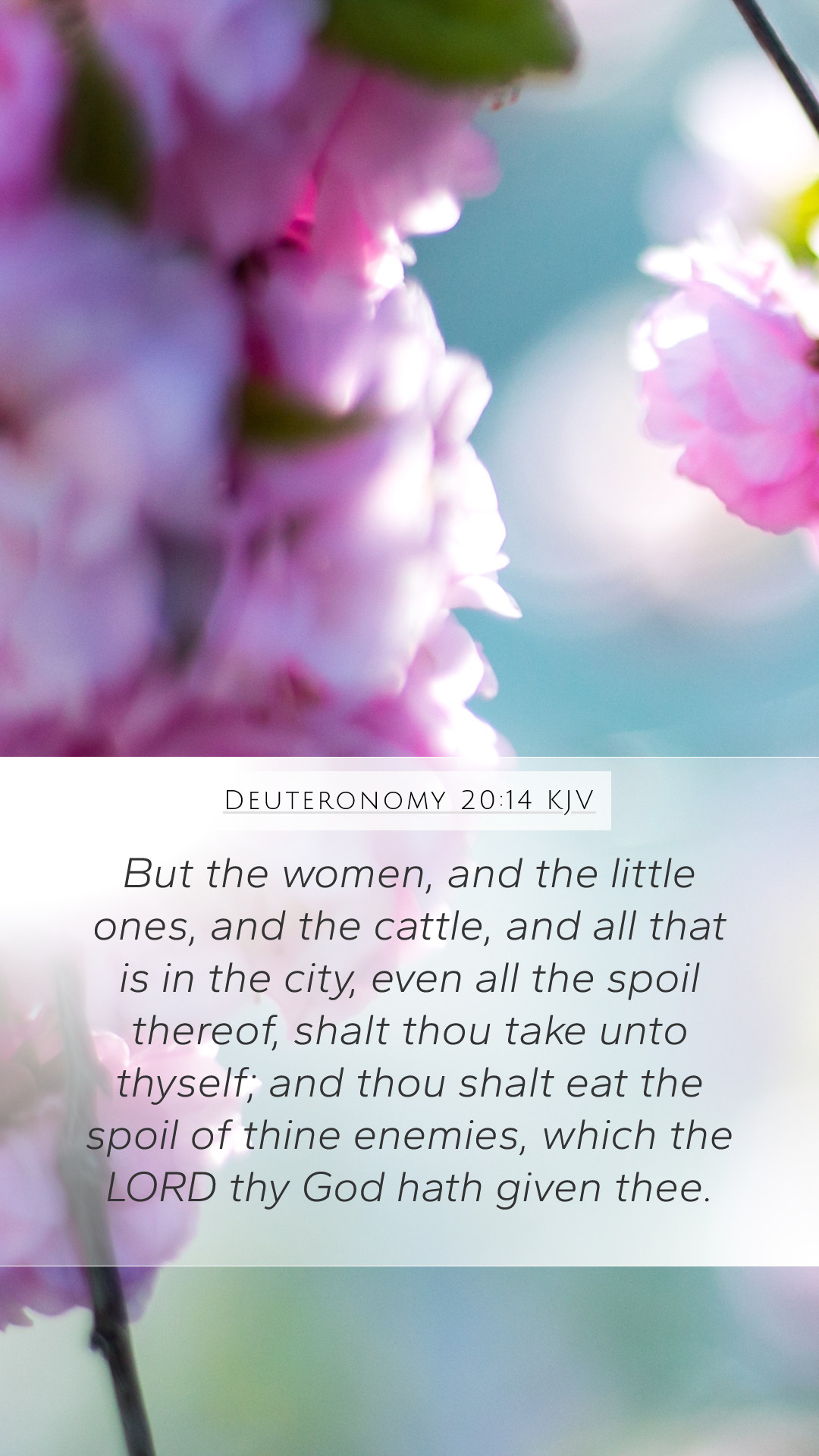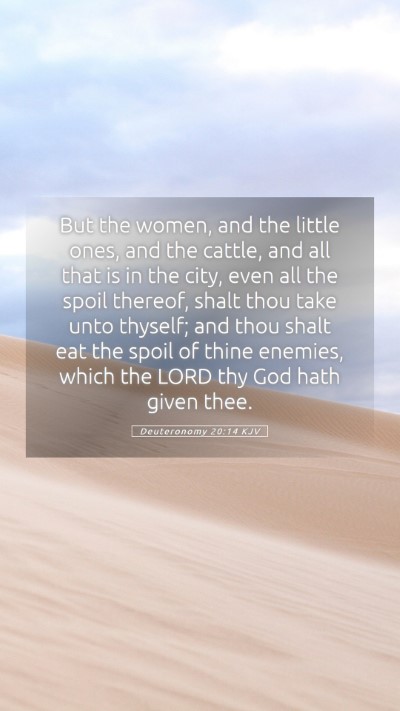Understanding Deuteronomy 20:14: A Comprehensive Bible Verse Commentary
The verse Deuteronomy 20:14 states:
"But the women, and the little ones, and the cattle, and all that is in the city, even all the spoil thereof, shalt thou take unto thyself..."
Overview
In this context of warfare, Deuteronomy 20:14 provides insight into the ethical considerations of Israelite warfare as presented in the Mosaic Law. The instructions given to the Israelites regarding the treatment of captives and spoils reflect a complex mix of divine mandate, cultural norms, and theological implications.
Bible Verse Meanings and Interpretations
-
Divine Command for Warfare:
According to Matthew Henry, the directive to take the women and children captives may reflect God's intention to preserve future generations and maintain a distinct Israelite identity amidst warfare.
-
Distinction in Captives:
Albert Barnes emphasizes that the differentiation between combatants and non-combatants is crucial. This verse underlines a notable ethical distinction in war, indicating that life must be preserved even among enemies.
-
The Role of Spoils:
Adam Clarke notes that while the spoils of war were traditionally claimed by the victors, the moral obligation to care for those who were spared illustrates a theological perspective on mercy and justice.
Historical Context
This verse is set against the backdrop of ancient Near Eastern practices. In many cultures of that era, total conquest often meant the complete eradication of opposing forces. The Mosaic Law, as captured in Deuteronomy, introduced a regulated approach. Barnes points out that this regulation was not merely a legal implementation but was steeped in God's covenantal promises to Israel.
Theological Implications
The taking of women and children as captives is not without its controversies. Scholars such as Henry note that these instructions must be understood within the context of God's overarching plan for Israel's survival and flourishing in the Promised Land. This reflects on the broader themes of judgment, mercy, and divine sovereignty.
Application of the Verse in Daily Life
Understanding Scripture, including complex passages like Deuteronomy 20:14, encourages believers to grapple with ethical dilemmas in both historical and modern contexts. This engagement can be fostered through:
- Participating in Bible study groups to discuss difficult passages.
- Utilizing online Bible study resources that delve into the ethics of warfare.
- Exploring Bible study guides that provide diverse perspectives on Scripture interpretation.
Connecting Related Scriptures
Several other passages amplify the themes and issues raised in Deuteronomy 20:14:
- Exodus 22:21: God's command on treating foreigners and vulnerable persons with kindness.
- 1 Samuel 15:3: God's instruction regarding the Amalekites highlights divine judgment in warfare.
- Matthew 5:9: Jesus' teaching on peacemaking reflects the heart of God's covenant with humanity.
Conclusion
The interpretation of Deuteronomy 20:14 presents a framework for understanding ethical conduct in warfare, divine justice, and mercy. Engaging with these scriptural intricacies challenges individuals to reflect deeply on how biblical principles apply across time and culture.
For those seeking deeper Biblical exegesis or a thorough analysis of Biblical verses for personal study or group discussions, resources for in-depth Bible verse explanations and understanding difficult Bible passages are invaluable.


